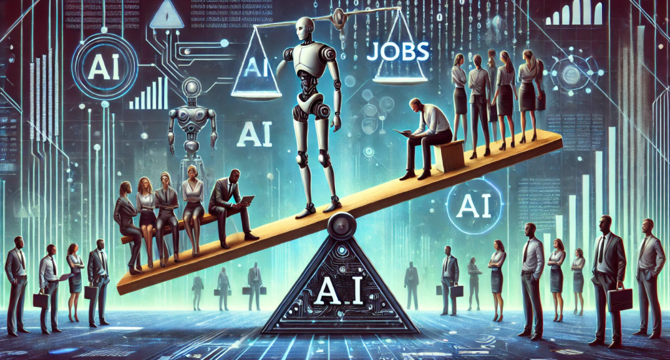VentureBeat
3w
306

Image Credit: VentureBeat
‘Gradually then suddenly’: Is AI job displacement following this pattern?
- AI is transforming the way we work through automation, copiloting, and content generation, but widespread job displacement has not occurred yet.
- Predictions suggest that AI may displace a significant number of jobs in the future, with estimates ranging from 40% to 300 million jobs being at risk of automation.
- Despite predictions, current job displacement from AI is minimal, with fewer than 17,000 jobs lost in the U.S. due to AI between May 2023 and September 2024.
- The gradual impact of AI on jobs could be following a pattern of slow build-up before a sudden and significant shift, similar to historical technological advancements.
- While AI adoption is increasing across various sectors, true integration into core operations that could lead to widespread job displacement has not yet been achieved.
- AI tools are being used more widely, with 78% organizations incorporating AI in at least one business function, but only 1% describe their gen AI rollouts as mature.
- Certain job categories, such as software development, are already being affected by AI automation, with the potential for AI to write a significant portion of code in the near future.
- The next economic recession could be a tipping point for AI adoption and job displacement as companies may turn to automation to cut costs and improve efficiency.
- If a recession occurs in 2025 or 2026, AI technologies, particularly those based on large language models, may be used to support productivity with fewer human resources.
- The impact of AI on jobs will depend on technological advancements, retraining programs, and the ability of businesses and employees to adapt to changes in the workforce.
- AI’s increasing integration and sophistication may lead to a shift towards a more AI-driven workforce, with potential permanent changes in how businesses operate.
Read Full Article
18 Likes
For uninterrupted reading, download the app